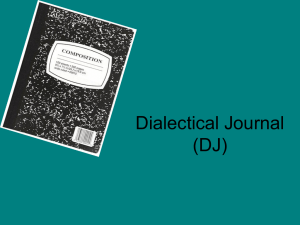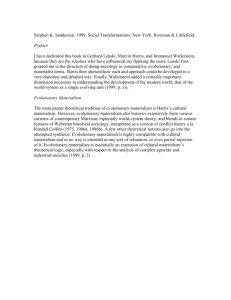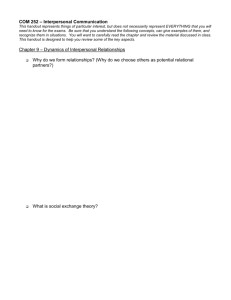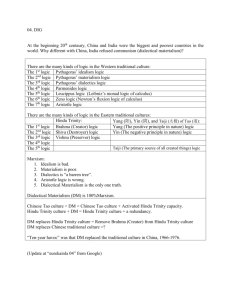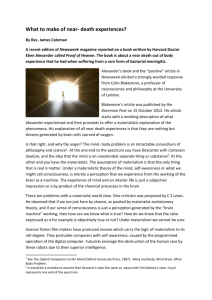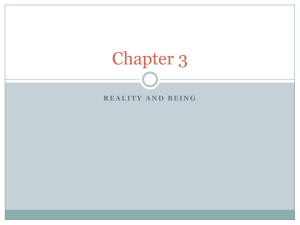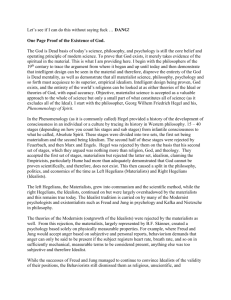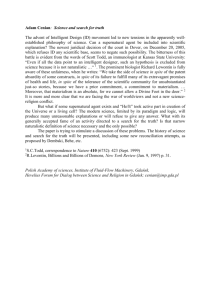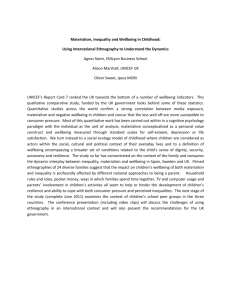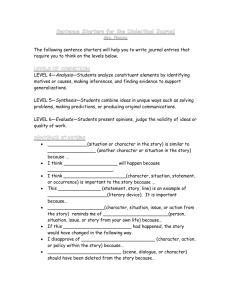Materialism Reference Sheet
advertisement
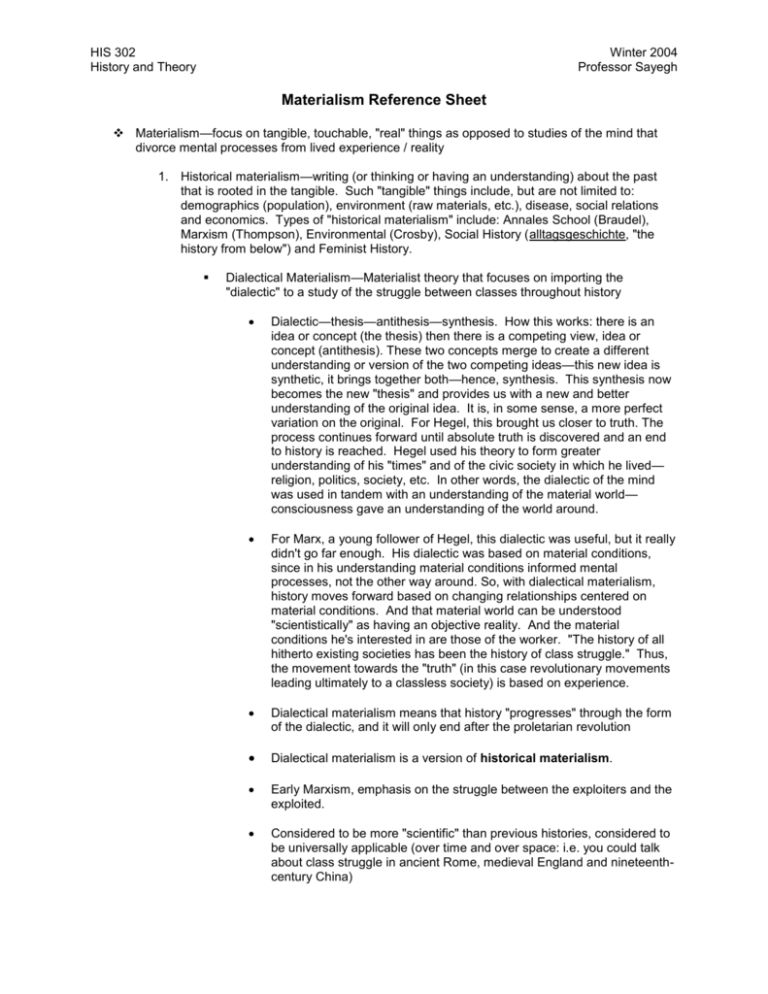
HIS 302 History and Theory Winter 2004 Professor Sayegh Materialism Reference Sheet Materialism—focus on tangible, touchable, "real" things as opposed to studies of the mind that divorce mental processes from lived experience / reality 1. Historical materialism—writing (or thinking or having an understanding) about the past that is rooted in the tangible. Such "tangible" things include, but are not limited to: demographics (population), environment (raw materials, etc.), disease, social relations and economics. Types of "historical materialism" include: Annales School (Braudel), Marxism (Thompson), Environmental (Crosby), Social History (alltagsgeschichte, "the history from below") and Feminist History. Dialectical Materialism—Materialist theory that focuses on importing the "dialectic" to a study of the struggle between classes throughout history Dialectic—thesis—antithesis—synthesis. How this works: there is an idea or concept (the thesis) then there is a competing view, idea or concept (antithesis). These two concepts merge to create a different understanding or version of the two competing ideas—this new idea is synthetic, it brings together both—hence, synthesis. This synthesis now becomes the new "thesis" and provides us with a new and better understanding of the original idea. It is, in some sense, a more perfect variation on the original. For Hegel, this brought us closer to truth. The process continues forward until absolute truth is discovered and an end to history is reached. Hegel used his theory to form greater understanding of his "times" and of the civic society in which he lived— religion, politics, society, etc. In other words, the dialectic of the mind was used in tandem with an understanding of the material world— consciousness gave an understanding of the world around. For Marx, a young follower of Hegel, this dialectic was useful, but it really didn't go far enough. His dialectic was based on material conditions, since in his understanding material conditions informed mental processes, not the other way around. So, with dialectical materialism, history moves forward based on changing relationships centered on material conditions. And that material world can be understood "scientistically" as having an objective reality. And the material conditions he's interested in are those of the worker. "The history of all hitherto existing societies has been the history of class struggle." Thus, the movement towards the "truth" (in this case revolutionary movements leading ultimately to a classless society) is based on experience. Dialectical materialism means that history "progresses" through the form of the dialectic, and it will only end after the proletarian revolution Dialectical materialism is a version of historical materialism. Early Marxism, emphasis on the struggle between the exploiters and the exploited. Considered to be more "scientific" than previous histories, considered to be universally applicable (over time and over space: i.e. you could talk about class struggle in ancient Rome, medieval England and nineteenthcentury China) Sayegh Materialism Reference Sheet, page 2 At first highly deterministic/teleological (classes act "this way" because they are moving history in a logical progression to the revolution) With Revisionism (the New Social History, the New Left), focussed on interrelations between classes at a particular historical moment (how do the gradations of peasants [rich, middle, poor] interact in pre-Revolutionary China? What is the relationship between the patricians and the plebeians in eighteenthcentury England?) With revisionism focus moves to "history from below"—studying the stories of people from the lower orders, their shared lived experience. Still believed on some level the importance of economics as a "base" that shaped the "superstructure" of society, culture, politics, etc. (refer to EPT for an example) No longer wrote about great events and great causes, no longer focussed on "the revolution." Some aspects of old Marxist history were untenable. Some saw modernity as problematic, not as something to move towards New recognition that stories of women and minorities didn't fit well with earlier models of Marxist history (all about class, class superseded all). Old stories denied other groups outside of "class" their agency. So new stories of women, minorities, etc. Some final comments: o You CAN be a materialist historian and not be a Marxist o You CAN be a materialist historian and STILL be interested in culture (Stedman Jones, EPT) o You CAN be dialectical and NOT be material (another can of theoretical worms!) o You CAN be material and NOT be dialectical o You can be material and NOT claim to have your finger on some "universal truth" o You can be material and NOT be teleological


